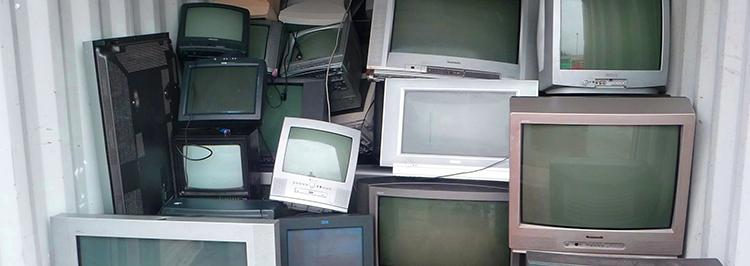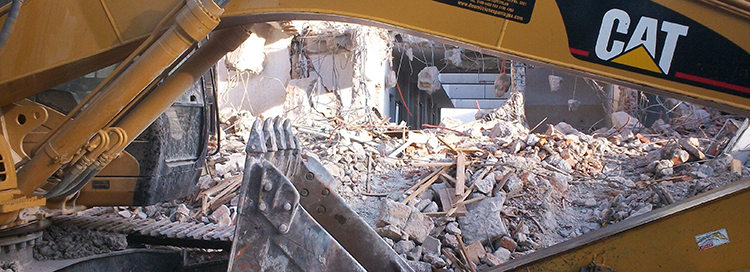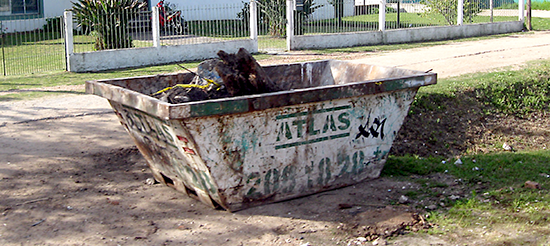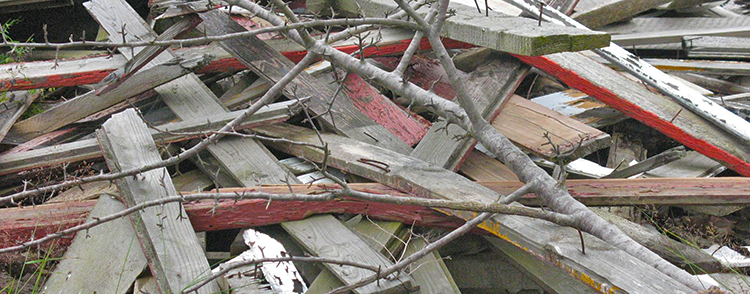We review the next 9 New Jersey recycling exemptions.
Recycling permits in New Jersey can be tough, expensive, and a real pain in the butt. If you can get coverage under any of the following exemptions, you'll save yourself time, money, and a serious headache.
For many folks looking to recycle in New Jersey, avoiding a full blown New Jersey recycling approval isn't just good business, it's an easy way to save time and a avoid a massive investment.
The problem is, recycling exemption in New Jersey are fairly limited in nature, and don't necessarily cover all possible recycling activities. So, if you can use an exemption, you're in luck. If you can't, you'll have to use a recycling approval like everyone else.

New Jersey Recycling Exemptions #9 to #17
Here's a review and explination of the next 8 recycling exemtions.
New Jersey Recycling Exemption #9
This exemption only covers plastic materials.
Anyone who receives, stores, or processes plastic materials at their facility, provided that only a two-month storage volume is present, and no material storage exceeds six months.
New Jersey Recycling Exemption #10
This exemption is related to land-clearing activities on a site. This includes tree parts and wood chips which are then either used on-site or transported off-site for utilization elsewhere as a product.
This does not apply to any wood material which has been generated off-site. For example, if a site was being cleared, and the trees were being chipped and the chips were being used on-site, then this exemption would apply.
New Jersey Recycling Exemption #11
Textile recycling. Enough said.
New Jersey Recycling Exemption #12
I see this a lot at farms and other agricultural operations. It covers leaf mulching at agricultural or horticultural sites. This material has to arrive in suitable containers and be promptly removed and spread on site, and then incorporated into the soil at the soonest available time.
New Jersey Recycling Exemption #13
This exemption specifically covers yard trimmings for composting purposes only.
This is a big one, and commonly used, but it includes a lot of restrictions and conditions, some of which are:
- A maximum of 10,000 cubic yards per year can be received.
- If grass clippings are included, they can comprise no more than 10% of the total amount of material received.
- The material must be put into composting windrows located specified distances away from property lines.
- Varies based on adjacent uses, but is usually between 50 and 500 feet from property lines.
- Composting operations follow a strict method.
- The operator must take an approved composting course within 1 year of start-up of operations.
- The operation must receive approval from the county, in the form of inclusion into the county's Solid Waste Management Plan.
- Just like getting a regular general approval, this can be a major hurdle.
Make sure you read the formal text of the exemption to ensure it applies to what you are doing. If it doesn't, you can't use it. This is not an easy exemption to obtain, but certainly beats having to get a general approval!
New Jersey Recycling Exemption #14
This exemption is for handling small amounts of Class D recyclable materials. Specifically it's for the collection, storage, and transfer of Class D recycling materials, such as consumer electronics by registered Small Quantity Handlers of universal waste.
Used oil does not qualify for this exemption.
If you’re not sure what Class D recycling materials are, they include used oils, antifreeze, latex paints, light bulbs, oil-based finishes, batteries, mercury-containing equipment, and consumer electronics.
Universal waste is hazardous wastes that includes batteries, pesticides, light bulbs, mercury-containing equipment, oil-based finishes, and consumer electronics. Might be a bit confusing, but it’s important to know which is which!
New Jersey Recycling Exemption #15
This exemption is the same as #14, except when applied at registered Large Quantity Handlers of universal waste.
New Jersey Recycling Exemption #16
This is the same as #14 and #15 above, except it applies to universal waste transporters.
New Jersey Recycling Exemption #17
This is similar to #14, #15, and #16, except it applies to any source separated Class D materials except for used oil and other universal wastes.
Using New Jersey Recycling Exemptions
Of the recycling exemptions in New Jersey, we find that of the 9 exemptions above, #13 is used the most. Remember, it comes with the most restrictions and conditions of about any exemption there is, and it’s also the most complicated one to obtain.
If you can fall under any of these New Jersey recycling exemptions, a fairly quick and easy notification needs to be made to NJDEP of your intent to operate (with the exception of #13), after which you’re free to go! That is, as long as you're in strict accordance with the conditions of the exemption you’re covered under.
Don’t forget, you must always be in compliance with any other regulations that might apply, such as local zoning regulations.
Here's some additional articles on recycling exemptions in New Jersey.
In the meantime, if we can provide any clarification or answer any questions regarding these exemptions or any other aspect of NJDEP solid waste or New Jersey recycling permitting, click here to contact us, or call us at 609-693-8301 to discuss your New Jersey recycling needs.



